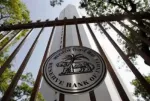Key Points
India cancels cargo transit rights for Bangladesh with immediate effect
Textile exporters complained about competition and reduced shipping space
Diplomatic relations strained by Yunus' controversial statements
Move comes amid US tariff challenges for Bangladesh
A circular issued by the Central Board of Indirect Taxes and Customs' (CBIC), dated April 8, states that it has been decided to rescind the circular dated June 29, 2020, which allowed such transshipments, with immediate effect. However, cargo that has already entered into India may be allowed to exit Indian territory, as per the procedure given in the earlier circular.
The 2020 circular had permitted the transshipment of export cargo from Bangladesh to third countries using Indian Land Customs Stations en route to Indian ports and airports, to enable smooth trade flows for Bangladesh’s exports to countries such as Bhutan, Nepal, and Myanmar.
Indian apparel exporters had earlier urged the government to withdraw this facility to the neighbouring country as it is a fierce competitor in the textile sector with its cheap labour. There were also allegations that the neighbouring country was misusing the facility to hurt Indian exports.
Federation of Indian Export Organisations (FIEO) Director General Ajay Sahai said there were complaints from Indian exporters about space being reduced for their shipments at airports due to the transshipment facility allowing cargoes from Bangladesh.
The announcement has come at a time when the US has imposed hiked tariffs against most countries and is expected to hit the Bangladesh economy.
The move also comes against the backdrop of controversial statements made by Professor Muhammad Yunus, the Chief Adviser of Bangladesh’s interim government, about India’s Northeast states during his recent visit to China. Yunus had stated that with Northeast India being "landlocked", Dhaka was the "only guardian of the ocean for all this region".
Indian had reacted strongly to the statement, which was seen as an attempt by Bangladesh to assert its leverage over access to the Northeast. Yunus has reversed Bangladesh’s foreign policy and has been moving closer to China, a country which he views as a new strategic partner. This has further soured relations between New Delhi and Dhaka.
The issue of persecution of minorities in Bangladesh is another problem area in the bilateral relations between the two countries, and Dhaka’s stand on the issue has been far from comforting for India.
Leave a Comment
Thank you! Your comment has been submitted successfully.







Reader Comments
We welcome thoughtful discussions from our readers. Please keep comments respectful and on-topic.